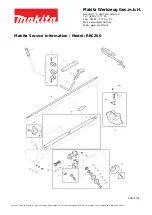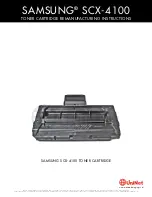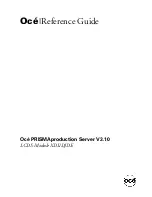
45
Before cutting any wood on your saw, study
all of the Crosscutting and Ripping Instruc-
tions found on pages 45 through 57. As you
learn new radial arm saw woodworking tech-
niques, you’ll see that many types of cuts
need different support and feeding devices,
known as jigs or fixtures. They can help you
make cuts more accurately. By helping to
steady the workpiece and keep you away
from the blade, they can help you safely use
your saw for certain cuts. Many people cus-
tom build their own jigs and fixtures. Jigs and
fixtures are often designed for a particular
cut. You can use your radial saw to easily
make many jigs and fixtures. To get you
started, we’ve included instructions for some
simple ones. After you have made a few
practice cuts, make up these jigs before
starting any projects. Make the push stick
first.
Push Sticks
Make the push stick using a piece of 1 x 2.
(see drawing top right for dimensions and
shapes)
Push Block
There are any number of ways to properly
cut your work pieces to make a push block.
The following steps describe one way you
can proceed.
Making the base:
• Start with a piece of 3/8" plywood at least
5-5/8" wide or wider and 12" long or longer.
• Make two ripcuts. Perform the first ripcut
along the long side of the 3/8" plywood to
create a 3/8" wide strip. Next ripcut the 3/8"
plywood to a width of 5-1/8".
• Crosscut the 3/8" plywood to 12" long.
• Crosscut a 2-1/2" piece off of the 3/8"
wide by 3/8" thick strip and save this short
piece for later.
• The next cuts will create the 3/8" by 9-1/2"
notch in the base. Mark the long edge of
the board 2-1/2" from one end. Make a
crosscut into the edge, stopping about 3/4"
into the board. Set the saw to the in-rip
position and rip the width to 4-3/4" along
the same edge as the stopped crosscut.
Stop the ripcut where the two cuts inter-
sect. Turn off the saw and remove the base
piece. The base should now measure as
shown.
Push Stick
Material for Push Block
Cutting Out the Base
Creating the Notch
Finished Base
90° Notch
Slightly Less Than Thickness
Of Workpiece Up To 3/8"
At Least 12"
At Least
5-5/8"
3/8" Thick Plywood
Base
At Least 12"
At Least
5"
3/4" Thick Plywood
Handle
2-1/2" (save)
5-1/8"
4th Cut
1st Cut
2nd Cut
3rd Cut
12"
3/8"
1st Cut
2nd Cut
4-3/4"
2-1/2"
These Edges
Must Be
Parallel
12"
At Least
5-1/8"
2-1/2"
3/8"
4-3/4"
Cutting Aides








































